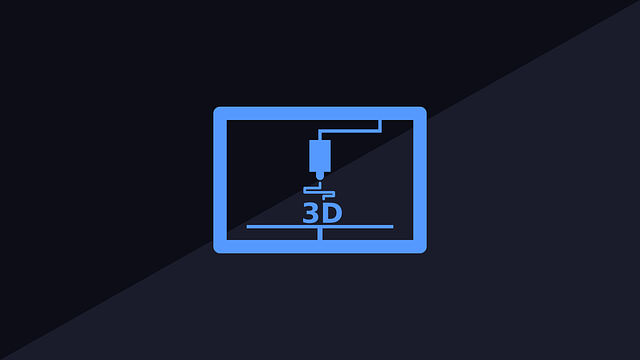Crypto Wallets in 2025: Your Complete Guide
In 2025, the world of cryptocurrency is evolving rapidly, and having a reliable crypto wallet has become essential for anyone looking to invest, trade, or earn crypto. This article dives deep into the significance of crypto wallets, explores different types, and shares my personal experiences navigating this complex landscape. Throughout my journey, I faced challenges and failures, but ultimately found the right strategies that can help you secure your digital assets effectively.
When I first entered the crypto world, I was overwhelmed by the sheer volume of information and options available. From exchanges to wallets, the choices seemed endless, and I struggled to understand how to keep my investments safe. Initially, I made mistakes by not researching the wallets thoroughly before using them. I registered with exchanges like Binance, which is one of the largest and most reputable exchanges, but I didn’t pay enough attention to the security features they offered. This lack of diligence led to a minor scare when I encountered phishing attempts that made me reconsider my approach to crypto security.
Through these experiences, I learned that the type of crypto wallet you choose can significantly impact your security and ease of use. In 2025, there are three main types of wallets to consider: hardware wallets, software wallets, and paper wallets. Each type has its pros and cons, and understanding these can help you decide which is best for your needs.

1. Hardware Wallets
Hardware wallets are physical devices that store your cryptocurrency offline. This method is one of the safest ways to keep your crypto assets secure. I initially hesitated to invest in a hardware wallet because of the upfront cost, but after facing a few close calls with online threats, I realized it was a worthwhile investment. Devices like the Ledger Nano X and Trezor offer advanced security features that protect your private keys from online attacks.
Using a hardware wallet has not only given me peace of mind but has also streamlined my trading process. I can connect my wallet to exchanges like Bybit when I want to trade, without exposing my private keys to the internet. This level of security has been a game changer for me. Additionally, hardware wallets often support multiple cryptocurrencies, making them a versatile option for diversified portfolios. With the continued growth of the crypto market, investing in a hardware wallet has proven to be a sound decision.
Furthermore, hardware wallets often come equipped with features such as biometric security and secure chip technology, which adds layers of protection against unauthorized access. They are particularly beneficial for long-term investors who prioritize security over convenience. The ability to manage multiple cryptocurrencies and tokens also allows users to diversify their investment portfolio while ensuring that their assets remain secure. Additionally, many hardware wallets now come with companion apps that provide a user-friendly interface for managing assets, further enhancing their usability. As technology progresses, we may also see hardware wallets integrating features like multi-currency support and enhanced recovery options, which can significantly improve user experience.
2. Software Wallets
Software wallets, on the other hand, are applications that can be installed on your computer or smartphone. They are more convenient than hardware wallets, making them a popular choice for everyday transactions. However, I learned the hard way that not all software wallets are created equal. I had an unfortunate experience with a lesser-known wallet that was hacked, resulting in the loss of some of my crypto assets.
Now, I make sure to use well-reviewed software wallets such as Exodus or Electrum, which provide robust security features and user-friendly interfaces. They also integrate with exchanges like MEXC, making it easy to transfer funds for trading. Software wallets can also offer additional features, such as built-in exchanges, portfolio tracking, and even staking capabilities, enhancing the overall trading experience.
However, it’s crucial to keep in mind that software wallets are more vulnerable to cyber threats compared to hardware wallets. Therefore, I recommend using software wallets primarily for smaller amounts of crypto that you intend to trade frequently, while keeping larger holdings in a more secure hardware wallet. Additionally, it's essential to choose wallets that provide features like recovery phrases and encryption to further enhance security. Regularly reviewing and adjusting security settings can also mitigate risks associated with software wallets. Furthermore, the emergence of mobile wallets designed specifically for quick transactions or in-app purchases has made it easier to engage with crypto in everyday life, although it’s important to maintain vigilance with these tools.
3. Paper Wallets
Paper wallets are another option, allowing users to print out their private keys and store them offline. While I have never personally used a paper wallet, I have read many success stories from people who value this method for its simplicity and security. Just like with hardware wallets, the key is to generate the wallet using a secure method and store the paper in a safe place. It's essential to ensure that the paper wallet is created in a secure environment, ideally offline, to mitigate the risk of exposure to malware or hacking attempts.
Paper wallets can be particularly useful for long-term storage, as they are immune to online attacks. However, they come with their own risks, such as physical damage, loss, or theft. Therefore, if you opt for a paper wallet, consider creating multiple copies and storing them in different secure locations to reduce the risk of total loss. Additionally, it’s important to use a reliable wallet generator and to ensure your printer is secure to prevent unauthorized access to your private keys. Keeping a digital backup of the wallet's information in an encrypted format can also serve as a safeguard against physical loss. It's worth noting that while paper wallets provide a high level of security, they may not be the most practical option for active traders who need to access their funds frequently.

Choosing the Right Wallet for You
Deciding which wallet to use depends on your trading habits, risk tolerance, and specific needs. If you are a frequent trader, a software wallet may be more convenient. However, if you are holding onto your assets for the long term, a hardware wallet is likely the safest option. I have found a balanced approach works best for me, where I keep a portion of my assets in a hardware wallet for security while using a software wallet for daily transactions. This hybrid approach allows me to benefit from the security of a hardware wallet while enjoying the convenience of a software wallet for regular trading activities.
Security Measures to Consider
Regardless of the wallet type you choose, it’s essential to take security seriously. Here are some measures I recommend based on my experiences:
- Enable Two-Factor Authentication (2FA): Always use 2FA whenever possible, especially on exchanges like Bitget. This adds an extra layer of protection against unauthorized access to your accounts.
- Keep Your Software Updated: Make sure your wallet and any related software are updated regularly to protect against vulnerabilities that could be exploited by hackers.
- Backup Your Wallet: Always have a backup of your wallet information, including recovery phrases, stored securely offline. This ensures you can restore access in case of loss or theft.
- Be Aware of Phishing Attempts: Educate yourself on common phishing tactics to avoid falling victim to scams, such as fake websites or fraudulent emails.
- Use Strong Passwords: Create complex, unique passwords for your wallets and accounts, and consider using a password manager to keep them secure and easily accessible.
- Consider Multi-Signature Wallets: If you manage significant amounts of cryptocurrency, multi-signature wallets require multiple keys for transactions, adding an extra layer of security and control over your assets.
- Stay Informed: Regularly read up on the latest security practices and trends in the crypto space. Knowledge is your best defense against potential threats, and staying updated can help you adapt to new challenges.
Future Trends in Crypto Wallets
As we move deeper into 2025, I see several trends emerging in the world of crypto wallets. One of the most significant changes is the increasing integration of wallets with decentralized finance (DeFi) platforms. Users will be able to manage their assets, lend, and borrow directly from their wallets without the need for intermediaries. This new functionality excites me because it makes crypto transactions more efficient and accessible.
Additionally, the rise of non-fungible tokens (NFTs) has prompted wallets to evolve further. Wallets are beginning to support NFT storage and trading, which opens up a new world of opportunities for artists and collectors alike. I personally have enjoyed exploring the NFT space and have found wallets that cater to this need to be incredibly useful. As NFTs become more mainstream, having a wallet that can seamlessly handle both cryptocurrency and NFTs will likely be a deciding factor for many users.
Moreover, the future may also see the development of smart wallets that utilize artificial intelligence to enhance security and optimize user experience. These smart wallets could provide real-time risk assessments and personalized recommendations based on your trading habits, making the management of crypto assets more intuitive and secure. Furthermore, the integration of biometric authentication and enhanced privacy features will likely become standard as user demand for security increases. As the technology evolves, we might also see the emergence of cross-chain wallets that allow users to manage assets from different blockchain networks in a single interface, further simplifying the user experience. Such advancements will likely empower users to take greater control of their crypto investments while reducing the complexities associated with managing multiple assets.

Conclusion
In conclusion, navigating the world of crypto wallets in 2025 can be daunting, but with the right knowledge and tools, you can successfully protect and grow your digital assets. My journey has been filled with ups and downs, but the lessons I learned along the way have been invaluable. Whether you choose a hardware wallet, software wallet, or even a paper wallet, always prioritize security and stay informed about the latest developments in the crypto space. Remember to explore reliable exchanges like Binance, MEXC, Bitget, and Bybit to ensure a secure trading experience. Stay vigilant, keep learning, and enjoy your journey in the world of cryptocurrency!
As the cryptocurrency landscape continues to evolve, staying abreast of trends and developments will be crucial. Engage with communities on platforms like Reddit or Twitter, participate in forums, and consider subscribing to newsletters from trusted crypto news sources. This proactive approach will not only enhance your knowledge but also help you make informed decisions as the market progresses. Remember, a well-informed investor is a successful investor.
Additional Resources
To further enhance your understanding and management of cryptocurrency wallets, consider exploring the following resources:
- CoinDesk - A leading news platform covering blockchain technology, digital assets, and the crypto economy.
- CoinTelegraph - Offers news, analysis, and updates on cryptocurrencies, blockchain, and fintech.
- CryptoCompare - A platform that provides information on cryptocurrency prices, charts, and market analyses.
- Blockchain.com - Provides wallets, exchanges, and various tools for managing your cryptocurrency assets.
- Investopedia - Offers educational content on crypto, investment strategies, and market insights.
For a deeper understanding of crypto wallet technologies and their implications for security, you may also want to look into books and online courses dedicated to blockchain and cryptocurrency. Resources like Udemy and Coursera offer numerous courses tailored for both beginners and advanced users. Engaging with educational materials can significantly enhance your knowledge base and equip you to make more informed decisions in your crypto journey.
Ultimately, the right crypto wallet for you will depend on your specific needs, investment goals, and how actively you plan to engage with the cryptocurrency market. The more informed you are about the options available, the better equipped you will be to make choices that suit your unique situation. Stay proactive, stay secure, and embrace the future of finance with confidence!
Glossary of Terms
To help you navigate the crypto space more effectively, here's a glossary of some commonly used terms:
- Blockchain: A decentralized digital ledger that records transactions across multiple computers, ensuring the security and transparency of data.
- Private Key: A secure code that allows you to access your cryptocurrency. It should be kept secret and never shared.
- Public Key: A cryptographic code that allows users to receive cryptocurrencies into their wallets. It can be shared freely.
- Decentralized Finance (DeFi): Financial services that operate on a blockchain, allowing users to borrow, lend, and trade without intermediaries.
- Non-Fungible Token (NFT): A unique digital asset representing ownership of a specific item or piece of content, often used in art and collectibles.